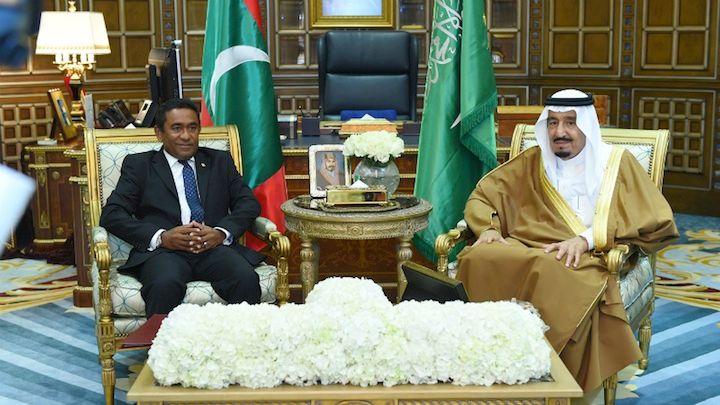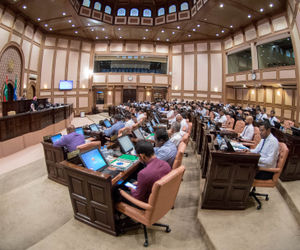Saudi Arabia opens embassy in Maldives
Saudi Arabia opened an embassy in the Maldives for the first time on Sunday as agreed upon during President Abdulla Yameen’s state visit to the kingdom in March.

03 Aug 2015, 09:00
Saudi Arabia opened an embassy in the Maldives for the first time on Sunday as agreed upon during President Abdulla Yameen’s state visit to the kingdom in March.
The embassy is located at the Hotel Jen in Malé and will issue visas for Maldivian students, pilgrims, and tourists.
In a meeting with a visiting Saudi Arabian delegation last week, President Abdulla Yameen had “noted the importance of establishing better transportation between the two countries,” the president’s office said.
President Yameen also told the delegation that the Maldives is “open for joint venture investments.”
Become a member
Get full access to our archive and personalise your experience.
Already a member?
Discussion
No comments yet. Be the first to share your thoughts!
No comments yet. Be the first to join the conversation!
Join the Conversation
Sign in to share your thoughts under an alias and take part in the discussion. Independent journalism thrives on open, respectful debate — your voice matters.




